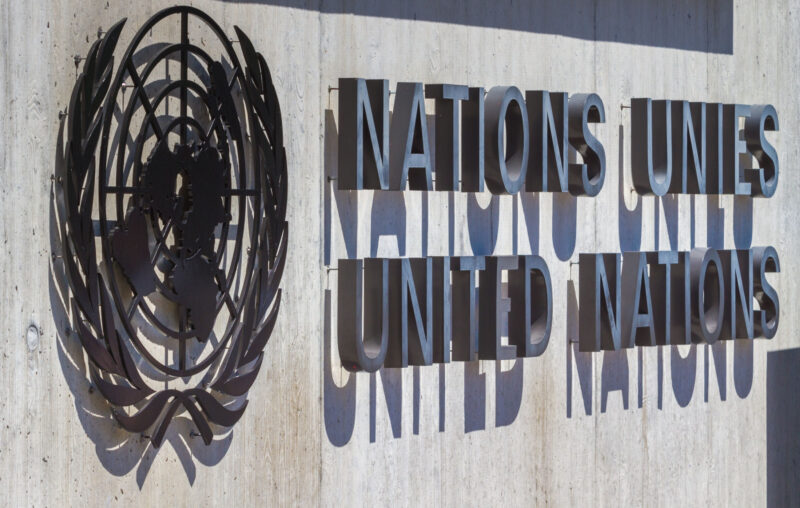
In 1964, the UN Conference on Trade and Development (UNCTAD) was formed as an institutional response to the ascendance of developing countries taking part in the global marketplace. UNCTAD sought to establish a means for addressing developmental concerns for countries reliant on the sale of commodity goods and to promote an inclusive economic system in an era of decolonization.
UNCTAD was specifically tasked with implementing Part IV of the General Agreement on Tariffs and Trade (GATT), which granted favour to developing countries through the Generalised System of Preferences (GSP). Part IV of the GATT allotted poor nations special and differential treatment and the GSP enabled the administration of preferential tariffs to imports originating from the developing world.
Thus, the UN embedded itself in global economic affairs and by the mid-1970s, UNCTAD put into place the Integrated Programme for Commodities (IPC). The IPC was to manage and monitor market structures for generating remunerative and consistent prices while taking into account the interests of countries purchasing from the developing world. The IPC had a Common Fund containing buffer stocks that could be increased when prices were down and sold off when prices rose, and this led to the creation of a variety of international commodity agreements.
Consequently, though, by the 1980s, the ability to stabilize prices had fallen short and the IPC was viewed as ineffective given the political power of the agricultural sector regarding production and transactions. When new low-cost commodity suppliers emerged from East Asia, namely cocoa and coffee producers, they were set to benefit from the higher prices established by Latin American and African governments. Accordingly, suppliers had no interest in limiting their harvests to keep prices high which then rendered the IPC’s Common Fund defunct.
The IPC only made sense in the politico-economic context and, given that it came about largely due to political concerns, it took little account of the actual dynamics of trade transactions, much like the Environment, Social, and Governance (ESG) metrics being used today. Nevertheless, despite the minimal economic impact of the IPC, development was posited as a political right and embolden the UN, World Bank, and World Economic Forum’s interest in business interference.
In 1986, the UN adopted the Declaration on the Right to Development (RtD), which was established by a working group put forth by the UN Commission on Human Rights. In accordance with Article I of the Declaration, RtD is defined as “an inalienable human right by virtue of which every human person and all peoples are entitled to participate in, contribute to and enjoy economic, social, cultural and political development.” Economic and social rights were positioned as being intertwined with civil and political rights and so, in conjunction with RtD, the concept of a New International Economic Order (NIEO) emerged.
RtD and NIEO were distinct from neoliberal ideologies that criticized state interference, and the proposals put forth proved to be somewhat controversial given the various preferences and ideological positions of countries involved.
Principles laid out in the NIEO Charter mandated a cooperative fight against inequality, fairer prices for commodities, benefits for disadvantaged communities, eliminating any waste of natural goods, promoting the use of natural resources, and so on and so forth. It is not hard to see the connection these principles have with current ESG ratings systems.
Like the IPC, the ideas and initiatives put forth by NIEO and RtD never had a substantial impact due to the lack of mechanisms for formally establishing ‘development rights,’ let alone implementing or enforcing adherence to the policies and principles proposed. Perhaps it is no surprise then that focus shifted away from development rights in the early 2000s and new working groups were formed, albeit with similar calls to action, to reinvigorate the UN’s role in global transactions.
In 2000, the Millennium Summit was held at the UN and eight Millennium Development Goals (MDGs) were proposed and signed on to by world leaders. The push for socially responsible investing took off shortly thereafter and the MDGs evolved into the Sustainable Development Goals (SDGs).
In support of the MDGs/SDGs, companies adopted the UN’s Principles for Responsible Investing (PRI) and the Global Reporting Initiative was later established to hold firms to account for progress regarding the development goals. The GRI, in partnership with the UN, has become a primary framework for ESG reporting and the PRI solidified ESG as the new mantra over RtD.
Now, as concerns and criticisms for ESG are gaining ground, and companies are shying away from ESG affiliations, the business community must be alert for the next call to action featuring another do-good moniker. Centralized planning shows no signs of slowing down, and this was made clear at the Sustainable Impact Meetings last September as well as at the World Economic Forum’s sessions in Davos at the start of 2023. So although ESG backlash has resulted in even the likes of Larry Fink, CEO of Blackrock, no longer referring to the contentious acronym, ESG won’t be going away. It will be renamed and reinvigorated as mechanisms for oversight and reporting are revamped and rolled out, and the recent development of the Integrated National Financing Framework (INFF) will secure the status of SDGs as being engrained in capital markets and the UN’s involvement.
